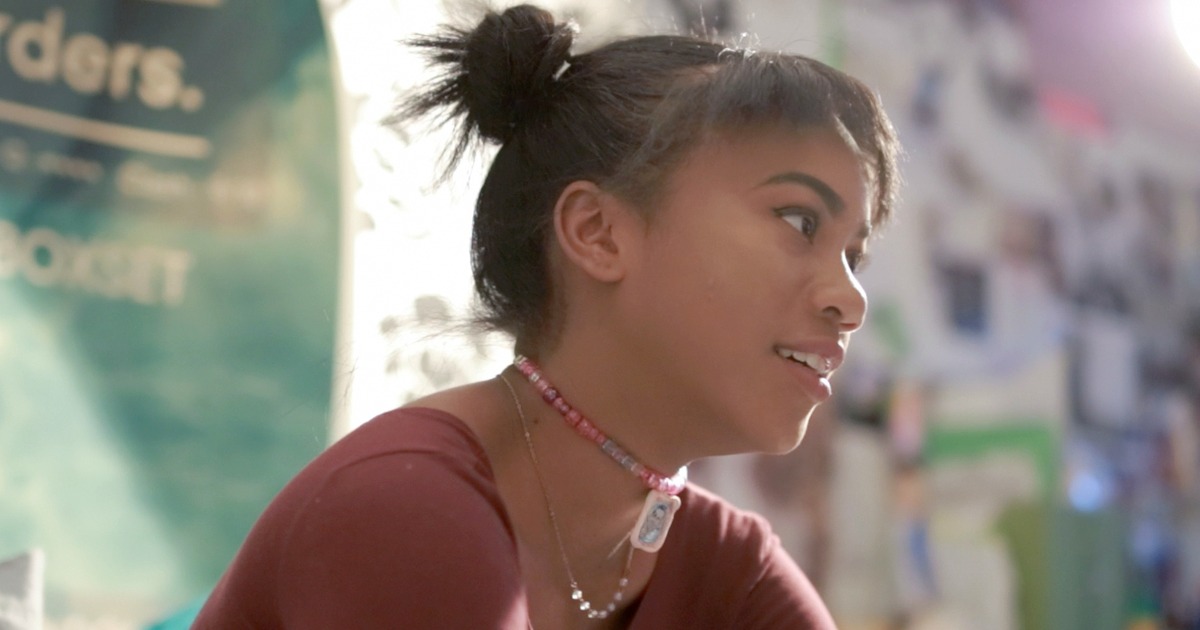
There are few moments in a person’s life more tumultuous than their respective teenage years. A series of dramatic changes after dramatic changes, these years are not only ones of growth physically and mentally, but also formative with regards to one’s world view and social acumen. Friends come and go, college looms heavy and so does moving out of one’s parent’s house. These are the years that truly make one who they are.
And these are the years that are the subject of one of 2017’s most interesting documentary films.
Entitled All This Panic, the film comes from director Jenny Gage, and looks at the teenage years of a collection of young women growing up in New York City. Shot over three years, the film follows seven young women as they bob and weave through this world that is at once deeply scary and yet equally exciting and exhilarating.
Besides being a beautiful documentary (more on that in a moment), All This Panic is superlative for the breadth of its view. Not just following one young woman, the film introduces us to numerous girls, all with their own fears and dreams. There are people like Lena, the awkward and devastatingly charming woman who is arguably the closest to a “lead” this film has. With familial strife looking to wreak havoc on her future, Lena’s struggles are universal in their specificity, and offers up some of the film’s most interesting insights into this time in a person’s life. Then there are people like Ginger, who is both Lena’s best friend and also a true kindred spirit. Equally as awkward and insecure as her best friend, they both share fears about what the future holds despite having different routes being taken.
Ginger’s younger sister and her best friend are subjects as well, as Dusty and Delila are of a slightly younger generation and yet trying to parse what to learn from watching the older girls just above them in school. As with any younger generation, they appear to be more self assured and mature than the older set, and yet have the same central fears and uncertainties. Rounding out the collection of women are the hipster Ivy who a close friend of Ginger’s and who spends much of her time hanging with her older boyfriend and roommate Gabe, as well as the rebellious yet studious Sage and Olivia, who is something entirely her own. Mature beyond her years, Olivia is a surfer with an introspective soul, who deals not only with her future after high school, but also her own sexuality.
Olivia in particular hints at what makes this film so great. The film is rooted heavily in the cinema verite tradition, and while it’s much more visually sumptuous than many of these fly-on-the-wall pictures, there’s a level of intimacy that is profoundly moving here. Speaking specifically about Olivia’s story, there are moments that the viewer becomes privy too (I’m thinking of a sequence in the film’s final act) that at once feel almost staged in their sheer cinematic beauty, and yet moving in a way non-fiction films rarely are.
Nuance is also in vast quantities here. Where as a young woman like Sage could be seen as nothing but your typical rebellious youth, there is a genuine humanity given to her portrayal here, a depth that leads her to become one of the film’s genuine stars. Sage is a young, African American woman who finds her rebellious nature coming into conflict with her hope of getting a scholarship to Howard, and it’s a narrative that’s at once entirely singular and yet deeply moving in a universal way. However, where the universality of these narratives is a powerful aspect, there’s a great deal to be said about Gage’s understanding and empathy with the specific female experience. In an age of Boyhood and every other “Bro” coming of age film from filmmakers bowing at the alter of Richard Linklater, it’s about damn time we see American cinema delve deep into the experience of smart, emotionally mature young women. This is at once a universal look at youth in transition, yet is so wonderfully specific that it is genuinely important anthropologically.
That all being said, there are also few documentaries as cinematic and beautiful as this one. Gage’s direction is intimate and never once draws away from the core narratives. Yet her voice is clear and assured. The cinematography is lush and warm, with the camera being one of empathy and compassionate. There are single shots here that will never shake from the viewer’s memory, and numerous sequences that will inspire tears and audible gasps. All This Panic is simply one of this year’s most captivating and genuinely beautiful documentaries.





![Bergman Island (The Criterion Collection) [Blu-ray]](https://criterioncast.com/wp-content/uploads/2022/11/bergman-island-the-criterion-collection-blu-ray-400x496.jpg)
![This Is Not a Burial, It’s a Resurrection (The Criterion Collection) [Blu-ray]](https://criterioncast.com/wp-content/uploads/2022/11/this-is-not-a-burial-its-a-resurrection-the-criterion-collection-blu-ray-400x496.jpg)
![Lars von Trier's Europe Trilogy (The Criterion Collection) [The Element of Crime/Epidemic/Europa] [Blu-ray]](https://criterioncast.com/wp-content/uploads/2022/11/lars-von-triers-europe-trilogy-the-criterion-collection-the-element-of-400x496.jpg)
![Imitation of Life (The Criterion Collection) [Blu-ray]](https://criterioncast.com/wp-content/uploads/2022/11/imitation-of-life-the-criterion-collection-blu-ray-400x496.jpg)
![The Adventures of Baron Munchausen (The Criterion Collection) [4K UHD]](https://criterioncast.com/wp-content/uploads/2022/11/the-adventures-of-baron-munchausen-the-criterion-collection-4k-uhd-400x496.jpg)
![Cooley High [Criterion Collection] [Blu-ray] [1975]](https://criterioncast.com/wp-content/uploads/2022/11/cooley-high-criterion-collection-blu-ray-1975-400x496.jpg)